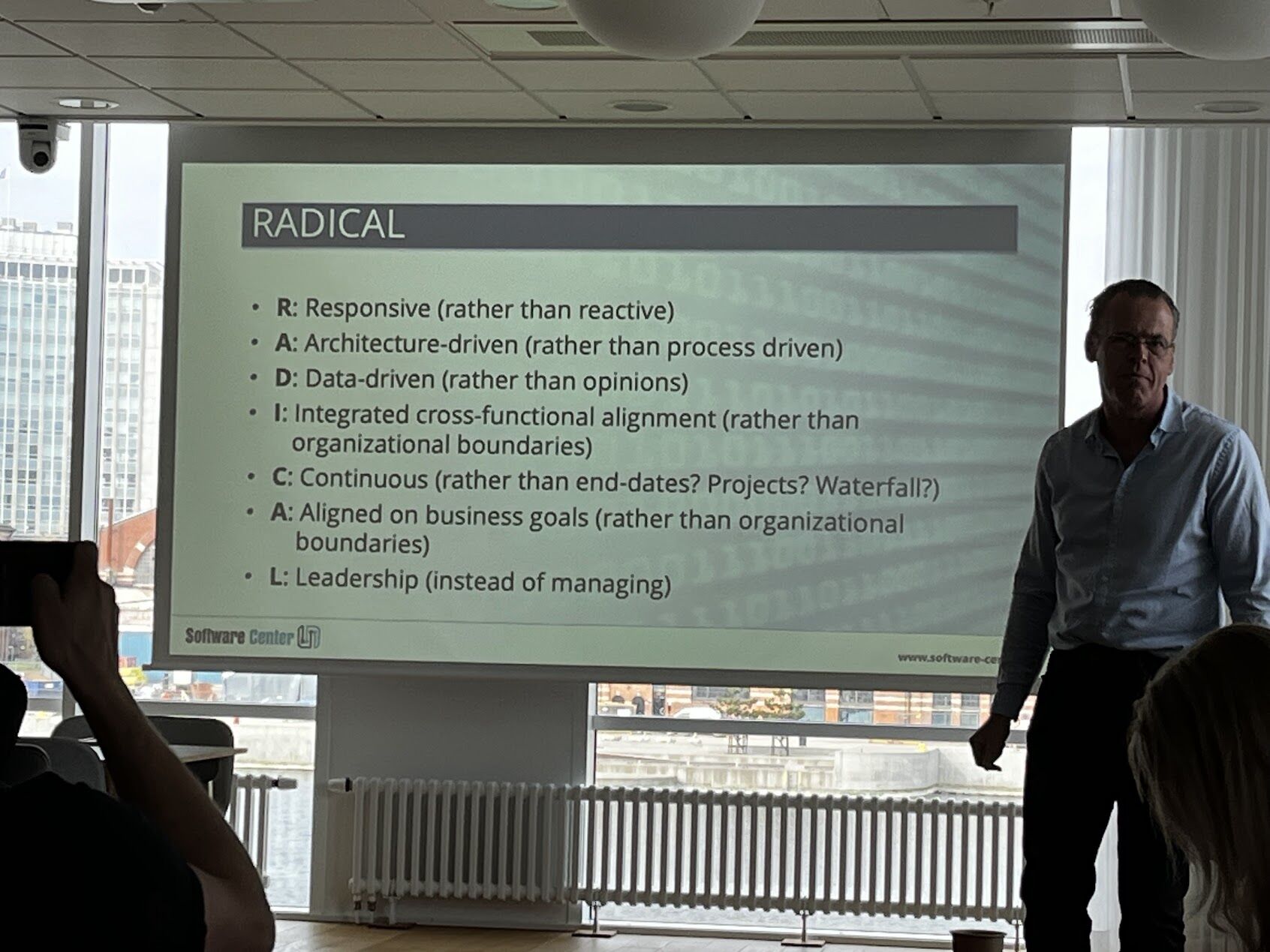This was the titleof a half-day workshop that was organized at Malmö University on March 19th. The workshop is part of a series of workshops around agile practices that we run as part of Software Center but to which we also invite companies external to Software Center.
During the workshop, a group of more than 40 practitioners from various industry domains discussed the challenges of agile practices and the many reasons for why companies experience difficulties in applying these and therefore, don’t benefit from these in large-scale software engineering. From Software Center, we had participants from Axis Communications, Advenica, Tetra Pak, Grundfos, Bosch and SAAB.
The starting-point for the discussions was that although most companies tried for the better part of two decades (the agile manifesto was published in 2001), we still don’t see successful adoption and effective use of agile practices. Especially, scaling agile practices is difficult and regardless of more recent frameworks like SAFe, many of the key challenges remain. For more reflections on this see: https://janbosch.com/blog/index.php/2024/01/02/2024-10-predictions/
The focus of the workshop was on what could be the next paradigm and what this new paradigm could (or should) look like. In break-out groups, the participants discussed what they appreciated with agile practices and when these work well. Based on this, each group identified what to keep, what to remove and what to add as a start for what could be a next paradigm.
The discussions captured everything from the overall organizational culture and mind-set to more team-related practices such as development cycles, customer collaboration and the ability to frequently deploy and validate. In most groups, the fast feedback cycles, the flexibility and the opportunity to develop and deploy in iterative and incremental cycles were highlighted as key advantages. On the downside, many groups reported on the too high focus on process, roles and organizational structure as this focus bring attention to the “how” to develop rather than the “what” to develop and “why”.
The workshop series is on-going and we welcome everyone to be part of this in our future online and on-site events!

